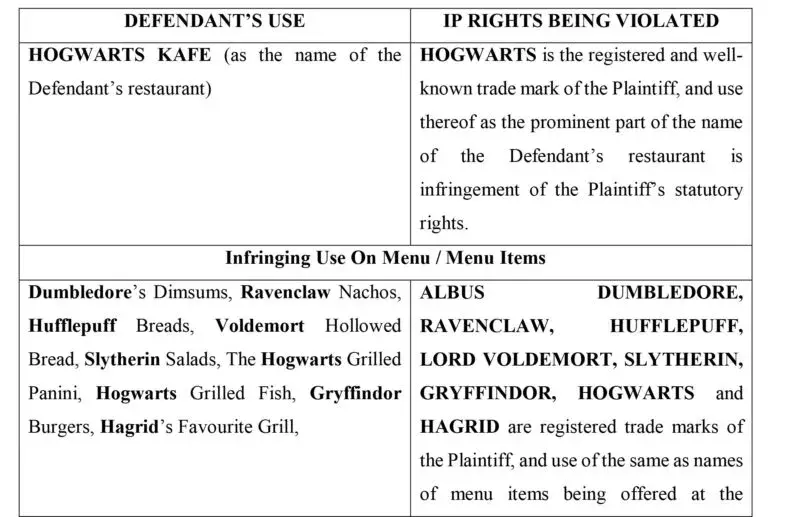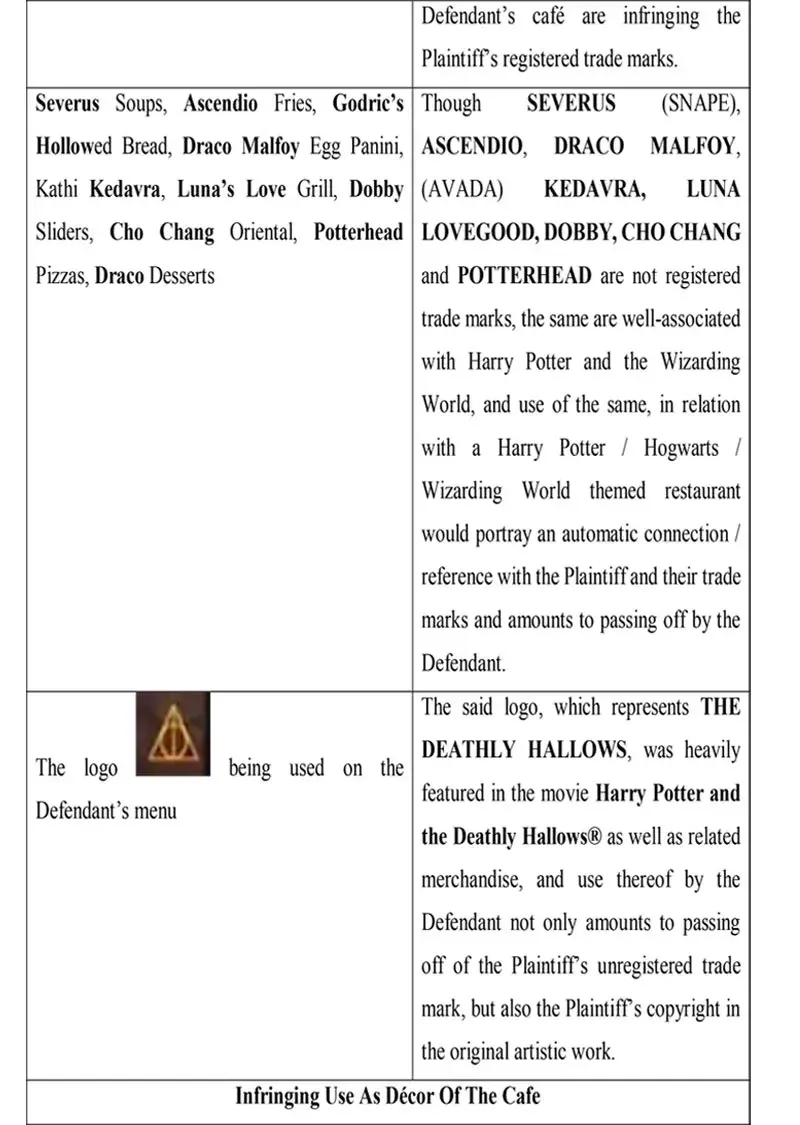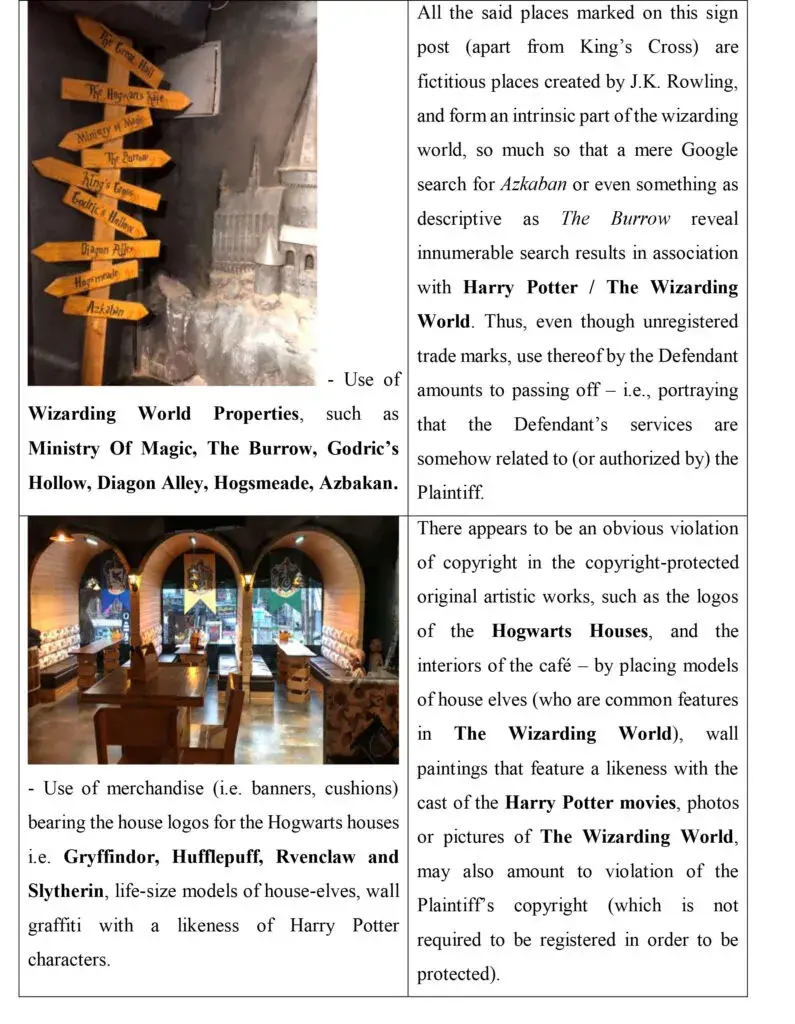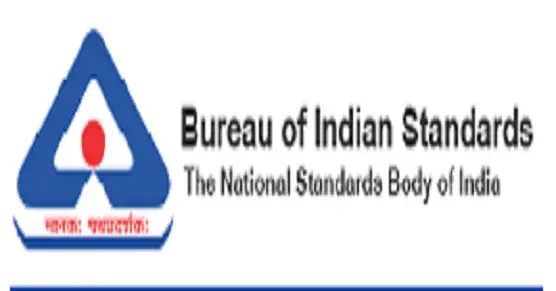Emami obtains injunction against Dr. Morepen- Pancharishta v. PaachanRishta-Paachanarishta
BECAUSE YOU(r trade marks) ARE WORTH IT!
Mischief Managed! The Hogwarts Kafe Saga
Counterfeiting of Luxury Goods- Guccio Gucci S.P.A V/S Intiyaz Sheikh
Do’S & Don’ts before Filing a Patent Application
Sexual Harassment at Workplace: A Corporate Perspective
Reversing input tax credit
Emami obtains injunction against Dr. Morepen- Pancharishta v. PaachanRishta-Paachanarishta

By Vikrant Rana and Pranit Biswas
It was reported that on September 13, 2021, the Commercial Court of Alipore issued directions in favor of the FMCG company – Emami Group, inter alia recognizing that their registered mark ‘Pancharishta’ was an originally coined term, which had been infringed by similar products introduced by Dr. Morepen under the deceptively similar names/marks ‘PaachanRishta’ and ‘Paachanarishta’. The suit was apparently filed by Emami Group against Dr. Morepen, seeking permanent injunction on account of passing off, trade mark and copyright infringement.
Facts
The Plaintiff, Emami Group is a Kolkata based multinational company, engaged in the business of manufacturing and selling personal and health care products, including natural products derived from Ayurveda concepts. The Defendant on the other hand is a fully owned subsidiary of the Indian pharmaceutical company Morepen Laboratories Limited, which is engaged in the business of manufacturing and offering a wide range of health care products, including medicinal Ayurveda products. The suit was filed by the Plaintiff seeking permanent injunction for passing off and infringement of copyrights owing to the introduction of an identical product under a deceptively similar name by the Defendant.
As reported in the media, some notable features of the product introduced by the Defendant are as follows:
- The name Paachanrishta/Paachanarishta, under which the new product has been introduced by the Defendant is deceptively, confusingly and structurally similar to the Plaintiff’s registered name/mark Pancharishta and Pancharishta Plus.
- The structure, shape, and colour scheme of both the products are highly similar.
- The functions of both the concoctions constitute similar medicinal properties and have been introduced to address the same health issues, viz. to aid digestion.
Arguments tendered by the Defendant
According to reports, the main contention by the counsel for the Defendant was that monopoly cannot be claimed over the term ‘Pancharishta’ owing to its derivation from Ayurvedic texts and concepts. It was asserted by the Defendant that Ayurveda is a science, and its concepts are generic in nature. Therefore, no entity may claim absolute/exclusive rights over terms derived from therein.
Arguments tendered by the Plaintiff
However, the abovementioned contention was rebutted by the counsel for Emami Group asserting that:
- Firstly, the term/mark ‘Pancharishta’ had originally been coined by them as a result of combining two words derived from Ayurvedic texts – ‘Pancha’, which essentially translates to the number ‘5’ in Devanagari/Hindi language; and ‘Arishta’, which refers to an Ayurvedic medicinal preparation.
- Therefore, the terms Pancha and Arishta are generic terms that cannot be monopolized, however, the term Pancharishta, which is an originally coined term and has been duly registered as a trade mark, has to be granted protection.
- Additionally, the Plaintiff also asserted their rights over the marks ‘Zandu Pancharishta’ and ‘Zandu Pancharishta Plus’, gaining advantage of prior use by stating that the same were duly registered as trademarks by them, with the Indian Trademarks Registry in the year 1968.
- The Plaintiff also asserted that infringing references were also found on the container of the impugned product offered by the Defendant, which was deceptively identical to the product sold by the Plaintiff. Further, the Plaintiff also pointed out the highly similar colour scheme adopted by the Defendant in the labelling and packaging of the impugned product further adding to the allegation of passing off and infringement.
By virtue of the aforementioned, the Plaintiff was able to demonstrate a direct consequence of the actions of the Defendant, which inherently is the infringement of the Plaintiff’s rights, owing to the evident confusing and deceptive similarities adopted by the Defendant.
Order
After careful consideration of the contentions made by the counsels of both the parties, the Commercial Court at Alipore was convinced that the term ‘Pancharishta’ is a unique term that is eligible to be protected. Thus, an Order in favour of the Plaintiff was passed, allowing the application and granting temporary injunction to the Defendants, consequently restraining the use of the impugned mark “Dr. Morepen Paachanrishta” and “Dr. Morepen PaachanRishta” ‘Paachanrishta’ as commercially adopted by Dr. Morepen.
Conclusion
The befitting Order was foreseeable owing to the highly identical characteristics displayed by both the products. Moreover, the contention of the Defendant asserting the ineligibility to enjoy exclusive rights over the term ‘Pancharishta’ lacked merit owing to the earlier judgement delivered by the Delhi High Court declaring that the name/mark ‘Pancharishta’ belonging to Emami Group is not generic in nature. The rationale was that the term does not give any direct connection to a medicinal formulation meant for curing digestive aliments, thus, granting injunction to the other party and restraining them from using the said word. However, the Delhi High Court in that particular case was of the opinion that the Defendant would be at liberty to use the word ‘Arishta’ in a manner so as to not result in violation of the Plaintiff’s statutory and common law rights.1
[1] Emami Limited vs Shree Baidyaraj Ayurved Bhawan, 26 August, 2019 [CS(COMM) 275/2019] – Delhi High Court
Girishma Sai Chintalacheruvu, Associate at S.S. Rana & Co. has assisted in the research of this article.
BECAUSE YOU(r trade marks) ARE WORTH IT!

By Lucy Rana and Ragini Ghosh
CASE ANALYSIS: L’ORÈAL S.A. v. ASHOK KUMAR & ORS. – CS (COMM) 474/2021
The well-known personal care and beauty brand – L’Orèal S.A., recently stumbled upon an entity who was found to be fraudulently impersonating them by using their trademarked brand name Loreal in their domain name while also using phony business email addresses suffixing their domain name. Upon discreetly demanding documents to ascertain a proof of validity of their business, under the disguise of setting a business deal in motion, L’Orèal was able to make the infringer furnish fake and forged documents, such as fake GST certificate, fake certificate of incorporation, forged cancelled cheques, etc., made out in the name of L’Orèal S.A. The infringer was also found to be operating a rogue website at the domain name www.lorealglobal.in.
L’Orèal S.A. (Plaintiff) lodged a commercial case in the Delhi High Court against the infringing party misusing the name of the Plaintiff’s well-known company for impersonation, and the domain name registrar and the telecom service provider were made parties as Defendants to the case.
Grounds
- That L’Orèal S.A. (Plaintiff) is an anonymously organized society, existing under the laws of France, and are actively engaged in the business of manufacturing, distributing and sale of personal care and beauty products;
- That the trademark ‘L’ORÈAL’ has been adopted and used by the Plaintiff since the year 1900, along with various stylized labels thereof;
- That owing to their operations, they have acquired goodwill and reputation both globally as well as in India, and hold several trademark registrations in India as well;
- That the Defendant is impersonating the Plaintiff, L’Orèal A.’s, Indian subsidiary;
- That the Defendants are hosting a rogue website under the domain name lorealglobal.in, which is deceptively similar/identical to the Plaintiff’s original website; and are also impersonating as an employee of the Plaintiff company and using email IDs that incorporate the Plaintiff’s trademark/domain name, such as operations@lorealglobal.in, paresh.deshmukh@lorealglobal.in and ashwini.r@lorealglobal.in.
- That along with the aforementioned email IDs, the Defendant is also operating a mobile number linked to the said email IDs;
- That in view of the abovementioned contentions, the Plaintiff has established a prima facie case to seek an injunction against the actions of the Defendant.
Accordingly, Judge Sanjeev Narula observed that the balance of convenience lies in favour of the Plaintiff and ex parte directed the following:
- Defendant No. 1 (unknown) and its proprietors/partners, agents, representatives, distributors, assignees, heirs, successors, stockists and all others acting for and on their behalf are restrained from using the website lorealglobal.in and email addresses – operations@lorealglobal.in, paresh.deshmukh@lorealglobal.in and ashwini.r@lorealglobal.in, and/or any other email address, website, social media accounts containing the Plaintiff’s trade mark;
- Defendant No. 1 is further also restrained from using the Plaintiff’s trade-name by any other mode or manner, including the Plaintiff’s trade-mark/label ‘L’OREAL’ and/or other formative trademarks/labels/variants in relation to any impugned, fraudulent and violative activities amounting to or likely to amount to
- Infringement;
- Passing-off;
- Violation of the Plaintiff’s proprietary rights in their trade name including the copyrights of the Plaintiff; and
- Falsification, unfair and unethical trade practices in respect of Plaintiff’s aforesaid registered trademark ‘L’ORÈAL’.
- Defendant No. 2 (Domain name registrar) are directed to furnish all details and information about Defendant No. 1 to the Plaintiff, including payment details (as provided while purchasing the impugned domain name), and to block access to the impugned domain name/website at– lorealglobal.in.
- Defendant No. 3 (telecom service provider) is directed to disclose to the Plaintiff, the user details along with KYC details of the mobile number found to be used by Defendant No. 1.
- Defendant Nos. 4 and 5 are directed to issue directions to all internet service providers registered under it to block access to the impugned domain name/website – lorealglobal.in.
- The Delhi Police is directed to submit a report in respect of the Plaintiff before the Delhi High Court.
The matter has been listed once again before the Delhi High Court on December 08, 2021.
In the instant matter, the interim order passed by the Delhi High Court shows its pro-active approach in effectively redressing a case, even though the whereabouts of the infringer of the Plaintiff’s trademark was yet to be ascertained. The order was delivered effectively, providing ample scope to practically ascertain the details of the infringer by directing the Domain Name Registrar and the Telecom Service Provider to furnish the same. Further, to ensure that the infringers are in fact restrained from operating the impugned website, the Court went the extra mile by issuing a direction to block public access on the impugned website as well. This evidenced how curbing further harm/loss to the injured party holds first priority in the eyes of the Court, and that they were therefore committed to tackling the matter without letting the lack of details about Defendant No. 1 act as an impediment in the substantial adjudication of the matter. Further, apart from granting the ex parte injunction to safeguard the Plaintiff’s interest, it may be pertinent to note that the directions issued innately also safeguarded the interests of the consumers, wherein the existence of a fake domain name operating under the identical trade mark of the Plaintiff, posed a grave and inherent threat to the target consumers as well. Therefore, the injunction also acts to efficiently mitigate the same, as the instance of infringement, i.e. the adoption of an identical domain name, may in fact quite likely be overlooked by any person/consumer of average intellect and memory.
Girishma Sai Chintalacheruvu, Associate at S.S. Rana & Co. has assisted in the research of this article.
Mischief Managed! The Hogwarts Kafe Saga

By Vikrant Rana and Diksha Singh
For decades now, people all around the world have been bewitched by the wonderful wizarding world introduced by Ms. Joanne Kathleen Rowling through the HARRY POTTER® books, which were brought to life by the Warner Bros. Pictures. Children, for over two decades, have waited years for their own Hogwarts® letters – the invitation to attend the prestigious Hogwarts School of Witchcraft and Wizardry, where Harry and his best friends have had many an adventure; and since one cannot simply walk into Diagon Alley (or in Mordor!), fans have to make do by participating in numerous pop culture conventions and attending book / movie events, just to feel like they belong in the wizarding world. Naturally, many would jump at the opportunity to dine in eateries inspired by the wizarding world, just to bask in the fictional universe associated with the Harry Potter books and movies. Such is the popularity of the wizarding world that correspondingly, it is a quick recipe for commercial success, by setting up “inspired” restaurants and cafes, offering fans an opportunity to participate in the magical world, and earn a few galleons in the process, perhaps not realizing that the same violates various IP rights vesting in the Harry Potter world.
One such recent instance was in the case of Warner Bros Entertainment Inc. v. Mr Ishant Kashiwal trading as the Hogwarts Kafe & Ors.1, where the Plaintiff (the registered proprietor of the Harry Potter trade marks worldwide and in India), brought a suit for injunction and damages for infringement, passing-off and unfair competition against the Defendant and their use of the name THE HOGWARTS KAFE and other related WIZARDING WORLD PROPERTIES in respect of the Defendant’s café / restaurant.
RIGHTS THAT MAY BE AFFECTED BY SUCH THEMED EATERIES:
In what has apparently become a common phenomenon, individuals have started coming up with themed eateries, which are “inspired” from famous books, movies and even TV shows.
Apart from the unlikely event that proprietors of themed restaurants have indeed obtained a trade mark or copyright license from the registered proprietors / owners of such rights to use these IP-protected works in respect of their eateries, such themed eateries may give way to a plethora of IP-right violations, even though they may have been commenced with good intentions (to offer fans a glimpse of what it means to be a part of a fictional world):
- Infringement of a registered trade mark (which are often registered in the names of the studios / producers);
- Passing off of an unregistered but well-known name / trade mark / logo that is associated with a pop culture phenomenon (or has a secondary significance), as the same will inevitably be used to derive undue benefit from the goodwill and reputation in the well-known trade marks and portray an affiliation with the real owner of the IP rights. For instance, such is the fame of J.K. Rowling’s Wizarding World, on account of the immense global (and Indian) fan-following, millions of book sales and movie-viewership, online engagements and activities as well as sale of merchandise, that mere references to phrases like Expecto Patronum, or Hogsmeade (amongst others), would portray an automatic association with Harry Potter and/ or The Wizarding World;
- Copyright violation of original artistic works / logos / font styles, which are synonymous with movies, books or TV shows, and are been used as a part of the décor / menu in such eateries in an unauthorized manner, in an attempt to portray an obvious association with the fictional world;
- Copyright violation on account of the expression of the eatery, i.e., if the eatery has elements that are obviously reminiscent / an imitation of a particular fictional world. Under copyright law, an idea itself is not protected, but the expression of an idea is protected. Therefore, if for instance, the layout / get-up of an eatery inspired by a pop culture phenomenon incorporates various elements that are associated with the particular movie / TV show, so much so that it acts as a near-replica of the fictional world, then the same may amount to copyright violation as well. Merely having a medieval-castle themed layout in an eatery is not infringing HBO’s copyrighted material (relating to the popular show Game Of Thrones®), however, if an eatery incorporates interiors, images or visual imagery similar to those from Game Of Thrones, for instance The Iron Throne replica, different House banners or House words, the Hall of Faces, replica of important swords and weapons portrayed in the show, alongwith similar furniture and décor, and character / place references, then an argument for copyright violation may be made out.
Coming back to the present case, let us analyse the different IP rights that appear to be violated by the Defendant:



On account of finding a prima facie case in favour of the Plaintiff, the Hon’ble Delhi High Court granted an ex-parte ad interim injunction in favour of the Plaintiff, thereby restraining the Defendant from using the marks THE HOGWARTS KAFE and THE WIZARDING WORLD Properties in respect of their restaurant, and take down its advertisements and listings from third-party websites / social media.
OTHER POP-CULTURE MISAPPROPRIATIONS
Other instances of themed eateries / cafes include F.R.I.E.N.D.S. themed Central Perk cafes (inspired from the Central Perk café in the extremely popular sitcom F.R.I.E.N.D.S.), in Kolkata and Delhi, which featured the orange couch (as featured in the sitcom), the dog statue owned by the characters Joey and Chandler, the distinctive purple door, and the words “Central Perk” as they appeared on the café’s window in the show.
Another incredibly famous TV show that has inspired a host of themed eateries, is GAME OF THRONES, and such themed restaurants have cropped up all around the world (and even in India), featuring a wide variety of famous elements from the show, like the Iron Throne, House banners, character posters, dishes and drinks names after characters and places, and so on!
WHAT’S NEXT FOR HOGWARTS KAFE?
In the instant case, the Hon’ble Court issued summons to the Defendant, indicating that the Defendant is to file the written statement to the suit within thirty days of receipt thereof, alongwith an affidavit of admission / denial of documents filed by the Plaintiff, with the matter being listed before the Joint Registrar on November 26, 2021 for completion of service and pleadings, and thereafter listed before the Court on March 24, 2022.
[1] CS(COMM) 457/2021
Counterfeiting of Luxury Goods- Guccio Gucci S.P.A V/S Intiyaz Sheikh

By Priya Adlakha and Deepika Shrivastav


Issues of trademark infringement and passing off were recently brought up for discussion before the Delhi District Court at Tis Hazari, when luxury fashion house GUCCI filed a suit for infringement and passing off against Shipra Overseas, owned by one Intiyaz Sheikh. The fashion brand claimed that the defendant was involved in manufacture and retail of counterfeit and sub-standard goods (‘socks’ as well as ‘packaging material’) incorporating their world-renowned ‘GUCCI’ logo as well as the green and red stripes which are distinctive of the brand. The plaintiff moved a Delhi District Court for grant of permanent injunction against the defendant so as to restrain them from infringing their trademark, copyright, passing-off their trademarks, etc.
FACTS
- The plaintiff is a leading luxury fashion house whose products are some of the most sought-after luxury goods in the world. The plaintiff’s rights in the mark GUCCI date back to 1921 i.e. the date when the plaintiff company was founded and stand officially recognized since 1980 i.e. the date of first registration of the mark. Plaintiff’s rights in its GUCCI trademark as well as the green and red stripes logo stand valid, subsisting and with full legal force. The plaintiff’s products are available across the globe through independent and conglomerate stores as well as through various online retail portals.
- In 2019, the plaintiff through its field agents, had become aware that the defendants are engaged in the manufacturing and selling of large quantities of counterfeit merchandise, such as, socks and packaging material under its well-known GUCCI trademark as well as the green and red stripes Given the identical nature of the defendant’s logo and mark, it was claimed that the adoption and usage was evidently deliberate and not just a mere coincidence and was clearly intended to carry out misrepresentation and confusion amongst the public/consumers.
- Accordingly, the plaintiff filed a suit for permanent injunction for restraining the defendant and persons claiming under him from infringing their trademark and copyright and from passing off their goods as those of the plaintiffs, and also for rendition of accounts, delivery up etc.
- Along with the suit plaint, the plaintiff also filed an application for grant of ad-interim injunction under Order XXXIX Rule 1 and 2, read with Section 151 of the Civil Procedure Code as well as another application under Order XXVI Rule 9 seeking appointment of a Local Commissioner to visit the premises of the defendant and confiscate all infringing material being manufactured/procured by them, and also to inspect the books of accounts/inventories and other related documents pertaining to the defendant’s business.
- Vide Order dated April 24, 2019, the presiding judge in the District Court passed an ex-parte ad-interim order against the defendant and also appointed a Local Commissioner to visit the premises and confiscate all infringing material being manufactured/procured by the defendant and also to inspect the books of accounts/inventories and other related documents. Summons for the suit as well as the accompanying applications were also duly notified to the defendant.
- At the premises, the Local Commissioner and the local police found a large number of infringing products bearing the plaintiff’s trademark GUCCI as well as the green and red stripes Further, the Local Commissioner duly apprised the defendant’s representatives present at the premises of the Court’s order and the purpose behind their visit.
- When the matter was taken up on November 15, 2019, it was informed that the service of the summons on the defendant could not be completed as their premises were found to be locked. The plaintiff was accordingly directed to once again effect service upon the defendant and in case of non-availability of the defendant, to affix the summons at a conspicuous place at the house of the defendant. The matter was thereafter scheduled for a hearing on January 31st, 2020.
FINAL ORDER
Regarding Non-appearance of Defendant
Notwithstanding the fact that the service of the summons could not be completed owing to the defendant’s premises being locked, the Ld. Judge observed that since that the defendant’s subordinates (Manager, Supervisor and other staff) were present at the time of the raid and were supplied with the Court’s Order dated April 24, 2019, it can be concluded that the defendant is well aware of the pendency of suit and has deliberately not been appearing before the Court. Accordingly, the defendant was ordered to be proceeded ex-parte.
Regarding Reliefs claimed in the suit
The Ld. Judge granted a decree of permanent injunction in favour of the plaintiff while holding that the plaintiff has been successful in establishing its case for trademark infringement and passing off and also awarded damages of INR 2,00,000 as well as cost of litigation estimated at INR 1,66,000 to the plaintiff. Regarding the relief of rendition of accounts, the Ld. Judge observed that as not only the defendant has not participated in the present proceedings but even otherwise as no further averments have been made on behalf of Plaintiff for ascertaining or obtaining any such rendition of accounts, therefore, no orders/directions were passed in this regard. As regards delivery-up, the Ld. Judge directed that all infringing goods found at the premises of the defendant shall be handed over to the plaintiff for destruction/erasure etc. Hence, the suit was favorably decreed in favour of the plaintiff.
AUTHOR’S POINT OF VIEW
While the Ld. Judge has inter-alia also granted a decree of delivery-up of the sized goods, the actual implementation of such relief remains questionable. As mentioned above, the defendant’s premises were found to be shut down, thereby indicating that the defendant has absconded from the premises. In such a situation, it is unlikely that the plaintiff will be able to seek the delivery of the infringing goods from the defendants and in all probability, the counterfeit goods will be back in circulation in the market. Therefore, this poses a serious concern to all the brand owners.
A plausible solution to this concern is that at the time of seizure of the infringing goods, the plaintiff is given an option to preserve the said infringing goods/take its delivery from the defendant at its own cost and risk. This would mitigate the risk of the defendant absconding from the premises with the infringing goods though the defendant may still fail to join the suit proceedings.
It is to be noted that the power of a civil court to pass a decree for delivery-up of the infringing goods/labels come from Section 135 (1) of the Trade Marks Act. Whereas, power to pass interlocutory orders to preserve the infringing goods comes from Section 135 (2) of the Act. The said sub-section does not specify that the plaintiff can also seek an order to preserve the infringing goods in its custody at the time of the commission conducted by the Local Commissioner or any time later during the pendency of the suit.
It is worth noting that the Copyright Act, 1957 differs in such situations and provides for preservation of the infringing goods in the custody of the owner of the copyright.
Relevant provision of the law is reproduced below:
Section 66 in the Copyright Act, 1957
- Disposal of infringing copies or plates for purpose of making infringing copies.—The court trying any offence under this Act may, whether the alleged offender is convicted or not, order that all copies of the work or all plates in the possession of the alleged offender, which appear to it to be infringing copies, or plates for the purpose of making infringing copies, be delivered up to the owner of the copyright.
This begs for a shift in law especially in cases where the plaintiff pleads that the defendant is a fly-by-night small business operator and there is a likelihood that he may not join the case proceedings after the seizure of the infringing goods by the Local Commissioner. In case the plaintiff is able to obtain a decree of delivery-up in its favour, the infringing goods lying in the custody of the plaintiff may then be directed to be destroyed. Whereas, if the defendant has a good case in defense and is able to get an order to vacate the ad-interim injunction, the court may then direct the plaintiff to deliver-up the infringing goods to the defendant as is usually allowed in cases where the ad-interim injunction orders are vacated.
This would strike a balance between the plaintiff’s interest in the destruction of the counterfeit goods as well as the consumers whose interest the brand owners as well as the courts are liable to protect.
Do’S & Don’ts before Filing a Patent Application

By Renu Bala and Johny Soloman Raj
A patent, in essence is an exclusive right conferred by the Government to an applicant for an invention for a period of 20 years. When a product is patented, the patentee shall have the exclusive rights to prevent third parties from the act of making, using, offering for sale, selling or importing the patented invention. A patent not only provides a competitive advantage to the patent holder but also helps in monetization of the invention and also helps in claiming damages if a third party infringes a granted patent. Therefore, it is highly beneficial to get monopoly over an invention by filing a patent application.
It is important for an applicant/inventor to understand the patent process so that they can safeguard their invention. Therefore, let us understand the do’s and don’ts that an applicant/inventor should consider before filing a patent application.
DO NOT DISCLOSE ANY DETAILS OF THE INVENTION BEFORE FILING A PATENT APPLICATION FOR IT
For any invention to be patentable, novelty is one of the most, if not the most crucial feature. An invention is considered as novel or new if it has not been disclosed. The novelty of an invention is destroyed if it is anticipated by prior publication, prior use or prior public knowledge. Therefore, it is imperative to file application for patent with the Patent Office before launching/ selling/ disclosing the invention in any form (media, lectures by academia/staff/students, exhibition or technical fair, website publication). When novelty is destroyed the chances of getting a grant for your patent application is minimal!
GO FOR A PATENTABILITY SEARCH
Do conduct a patentability search to ascertain the patentability of the invention i.e. if the invention is new and is non-obvious before filing the patent application. A patentability search report provides you the insights related to the idea such as whether the idea is patentable or not. If there is something similar then you can make modification in your invention so it can be different and have novelty. Moreover, it is always better to know the patentability of the invention before investing time, money and other resources in the process of filing the patent application.
FILE PATENT APPLICATION AS EARLY AS POSSIBLE PREFERABLY PROVISIONAL APPLICATION
Most of the patent offices are working on “first to file” principal, including India. If two people are working on same idea then the one who files the application first will get the advantage of priority over the other one. Therefore, it is advisable to secure the priority date by an early filing.
Worry not, your invention need not be finalized or you need not have the final prototype prior to filing of the patent application. You can always file a “provisional application” if your invention is not fully developed so as to get an earliest filing date. This provisional application can be filed quickly and without any claims. Then you can utilize the time provided by the respective patent office, the time is 12 months in India to file the complete specification along with claims after filing the provisional specification with the complete details of the invention. Thus, there is no need to fret and avoid filing an application, if the invention is not yet been fully figured out!
HAVE PROPER NON-DISCLOSURE AGREEMENT/ EMPLOYMENT AGREEMENTS SIGNED
The rights associated with the patents plays a very important role when it comes to monetization of the invention. Improper assignment agreements or no agreements can lead to a plethora of issues, which can undermine a patent with good potential.
If you are an organization and your employees are working on an invention, make sure you have a proper written contract/agreement with them, enumerating the obligations related to the IP developed by them during the tenure of their employment in the organization, so that all rights of the patent/IP can be enjoyed by your organization and not be vested with the individual inventors.
If you are an individual and working with co-inventors, it is advisable to have a specific written contract about the rights of each person to avoid any clashes in future.
Guidelines for Hallmarking Jewellery

DISPLAY REQUIREMENTS AT SALES OUTLETS
Recently, the Bureau of Indian Standards has issued the ‘Guidelines for Grant, Operation, Surveillance & Cancellation of Certificate of Registration of Jewellers’. In pursuance of the same, retail outlets with BIS Hallmarking Registration are receiving notices from the BIS regarding additional mandatory display requirements to be complied with at sales outlets.
These display requirements are highlighted hereunder –
Outside the Outlet
1. The registered jeweller shall display the logo of the BIS with the wording “Hallmarked Jewellery available for sale”

2. The BIS certificate of registration for sale of hallmarked articles shall be displayed prominently.
Inside the Outlet
1. The hallmark that one can expect to see on a hallmarked article shall be displayed prominently including all components.
2. A magnifying glass of minimum 10X magnification shall have and make available to customers for them to be able to verify the hallmark on the jewellery/artefact.
3. A weighing balance of 0.01g accuracy shall have and make available to customers for verification of weight of the jewellery/artefact.
4. The contact details of the BIS Office shall be displayed for queries and complaints (as may be available on www.bis.gov.in).
5. Hallmarking charges shall be displayed –
a. ₹35 per article for gold jewellery/artefacts.
b. ₹25 per article for silver jewellery/artefacts.
Surveillance Measures
It is expected that the process of market surveillance by the BIS will be commencing soon, which involves randomly verifying the authenticity or HUID codes, drawal of samples for testing, as well inspection as the aforementioned display requirements. Jewellers must mandatorily cooperate with the authorised representative of the BIS during such assessment.
If the jeweller is found to be not in compliance with the aforementioned display requirements, a warning letter will be issued on the first reported non-compliance. The jeweller shall be required to submit a corrective action along with the evidence of that within 72 hours of receipt of the said warning letter. In case no response in respect of the same is received by the BIS, action towards cancellation of registration may be initiated.
Mandatory Registration
Since June 1, 2021, it is compulsory for all jewellers selling gold jewellery/artefacts (manufacturers, wholesalers, distributors and retailers) with a turnover of more than ₹40 lakh to mandatorily have themselves registered with BIS.
This is a major step for consumers to protect the public against adulteration and to remove corruption within the industry. Retailers are also expected to gain from the step as it helps keep a check on supplier quality. Non-hallmarked jewellery is expected to be slowly be phased out, and non-registered jewellers will be disfavoured. It is only a matter of time as similar mandates are brought for other precious jewellery.
Related Posts
Hallmarking- Bureau of Indian Standards
MANDATORY REGISTRATION OF JEWELLERS UNDER HALLMARK SCHEME FROM JUNE 16, 2021
Sexual Harassment at Workplace: A Corporate Perspective

Background
In 1993, the Government of India ratified the Convention on Elimination of All Forms of Discrimination against Women (“CEDAW”),1 following which the Supreme Court has now incorporated basic principles of human rights enshrined in the Constitution of India as under Article 14, Article 15, Article 19 (1) (g) as well as Article 21, along with the provisions of CEDAW.
In 1997, with the passing of the groundbreaking judgment in the case of Vishakha v. State of Rajasthan,2 the Hon’ble Supreme Court for the very first time, laid down guidelines for preventing sexual harassment at workplace. These guidelines enumerated by the Court were to be treated as the law declared under Article 141 of the Constitution.
These guidelines went on to form the basis of the Sexual Harassment of Women at Workplace (Prevention, Prohibition and Redressal) Act, 2013 (“POSH Act”).3 The POSH Act amplified the definition of the workplace to include informal sector, containing domestic workers. It extends protection to all workers in the public as well as the private sectors including health, sports, education, government institutions, and any other place visited by the employees through the course of her employment.
With the widespread outrage during the #MeToo movement, people have become more sensitized towards the issue of sexual harassment, especially at workplace, and the corporations have become much more alert so as to avoid any reputational damage to their company, lawsuits, vicarious liability of the employers, while also retaining their staff members.
Compliance with the POSH Act in Corporate Sector
As per the POSH Act, certain mandatory measures are to be enforced by the employers in order to defend the interest of women at workplace. These include:
- Internal POSH Policy:A company is required to formulate an internal POSH policy with the objective to establish a secure working environment for the female employees. As per this policy, every corporate entity must constitute an Internal Complaints Committee (“ICC”), in accordance with the POSH Act. The employers are responsible for the safety and security of its employees against sexual harassment, and for this purpose, a well-executed policy must:
- Forbid undesirable conduct that may amount to workplace sexual harassment,
- Make its employees aware and sensitized towards this issue.
- Furnishes a meticulous framework for redressal of any grievances arising therewith.
- Internal Complaints Committee or ICC:4For every corporation comprising of ten or more employees, it is mandatory to constitute an internal committee for recording and processing complaints and ultimately redress the grievance of the wronged employee by recommending suitable actions to be taken by the employer. This committee is required to be headed by a ‘female presiding officer’.
In case of grievance not being resolved internally, the ICC is under a duty to forward the same to the District Officer.
Furthermore, the Hon’ble Delhi High Court in M/s Air France India and Anr. v. Ruchika Singh Chhabra5 laid down that “…the ICC should be constituted in strict compliance with the requirements under law…”
An aggrieved employee may submit a written complaint to the ICC within a period of three months from the incident. However, the ICC has the authority to condone any delay in submitting the complaint beyond this three months period.
- Sensitization and Training Programs:Every organization must conduct, at regular intervals, orientation and training programs for its employees. The issues of sexual harassment must be thoroughly discussed and employees must be duly informed about the impact of the same on their personal as well as on the company’s reputation.
- Annual Report:As per the POSH Act, the ICC is required to submit an Annual Report to the Registrar of Companies, with the details of all the sexual harassment complaints filed with the employer and the District Officer over the year and how many files are still pending or closed.6
It is pertinent to be noted that the Ministry of Corporate Affairs vide its notification dated July 31, 2018, amended the Companies (Accounts) Rules 2014,7 on a request by the Ministry of Women and Child Welfare. As per the Amendment, it is now compulsory for every company to disclose that all the provisions of the POSH Act have been properly implemented. Furthermore, in case of any non-disclosure, a company can be made liable in accordance with Section 134 of the Companies Act, 2013. The section now includes “A statement that the Company has complied with provisions relating to the constitution of Internal Complaints Committee under the Sexual Harassment of Women at Workplace (Prevention, Prohibition and Redressal) Act, 2013.”8
- Penalties: Under the POSH Act, an employer can be penalized for non-compliance, in the following cases:9
- Failure to constitute ICC.
- Failure to act upon recommendations of ICC.
- Failure to submit its Annual Report to the District Officer.
- Flouting or attempting to flout or abetting any contravention of the POSH Act or Rules therein. In case of an employer violating the provision more than once, he shall be subjected to double the punishment or higher punishment as prescribed under the law at the time.
Sexual Harassment and Work from Home
In the ‘new normal’ of the virtual work spaces with a major chunk of the corporate sector ‘working from home’, the menace of sexual harassment still exists. The POSH Act covers against any such act committed in the ‘workplace’. The workplace defined under the act talks about only the physical environment and not the virtual one. This leaves a major loophole in the application of the act in instances of virtual sexual harassment of employees. However, if relied on the intention of the legislature, it may be presumed that ‘home’ may be construed as an ‘extended workplace’ and sexual harassment of an employee in this environment, fall within the purview of the POSH Act.
While keeping this key issue in sight, a more advanced redressal mechanism is required to be adopted by the corporations and monitor its implementation.
Conclusion
Even though the corporate sector is rapidly developing in India, the nuisance of Sexual Harassment has not been completely eliminated. Decades after passing of the Vishakha Guidelines and years after the enactment of the POSH Act, aggrieved employees still find themselves in a position of vulnerability and helplessness.
The existence of instances of sexual harassment in a workplace considerably undermines the quality of working culture, mental stability of employees, and ultimately jeopardizes the standards of the work being done. It is high time for each and every organization to responsibly adopt an all pervasive policy and ensure its implementation and strict punishment to the offenders.
Related Articles:
- POSH- Sexual Harassment Against Women
- Constitution of ICC under POSH Laws in India
- Remedies available under POSH Laws in India
To know more about Labour Law in India, read below:
[1] https://www.unwomen.org/en/digital-library/publications/2016/12/cedaw-for-youth
[2] AIR 1997 SC 3011.
[4] Section 4, POSH Act.
[5] MANU/SCOR/21700/2018.
[6] Section 21 and Section 22, POSH Act.
[7] https://www.mca.gov.in/Ministry/pdf/NCARules_Chapter9.pdf
[8] Section 134 (8) of the Companies Act, 2013 states- “If a company is in default in complying with the provisions of this section, the company shall be liable to a penalty of three lakh rupees and every officer of the company who is in default shall be liable to a penalty of fifty thousand rupees.”
[9] Section 26, POSH Act.
Anushka Choudhary, Intern at S.S. Rana & Co. has assisted in the research of this article.
Reversing input tax credit

By Vikrant Rana and Rima Majumdar
Under the GST regime, tax on value addition is implemented through a seamless process of Input Tax Credit (ITC). When a buyer who is registered under the GST Act, purchases goods from a registered seller, the buyer is entitled to have the GST paid by the supplier and charged from the buyer, credited back to the buyer. However, in many instances, the supplier defaults in paying the tax on time, or for reasons best known to him, may even fail to pay it entirely to the Department.
Recently, the Madurai Bench of the Madras High Court passed an order in the case titled M/s D.Y. Beathel Enterprises vs. State Tax Officer (Data Cell), W.P.(MD) No. 2127/2021 wherein the Petitioner had filed a Writ, inter alia praying that the records of the Respondent in GSTIN 33AUMPG3862A1ZZ/2017-18, dated October 29, 2020 be quashed and directions be issued to the Respondent to pass fresh assessment orders after allowing the Petitioner to cross examine the seller in the said case concerning input tax credit.
BRIEF FACTS OF THE CASE
The Petitioners are traders in Raw Rubber Sheets. According to them, they had purchased goods from one Mr. Charles and his wife Mrs. Shanthi, and a major portion of the sale consideration was paid only through banking channels. These payments also included the tax component, and the seller had claimed to be registered under the GST Act.
Based on the returns filed by the sellers, the Petitioners availed input tax credit. However, later during inspection by the Respondent i.e. the tax authorities, it came to light that Charles and his wife i.e. the sellers, in fact did not pay any tax to the Government. Therefore, the Respondent initiated proceedings against the Petitioners.
Show cause notices were issued by the Department and in response to the same, it was submitted by the Petitioners that all the amounts payable by them had been paid to the sellers and that therefore, those they will have to be necessarily confronted during enquiry.
However, the Department passed the impugned orders without involving the actual sellers, i.e. Mr. Charles and his wife Mrs. Shanthi, and levied the entire GST liability of the seller on to the Petitioners.
ARGUMENTS OF THE PETITIONERS
The Petitioners, relied on the case of Sri Vinayaga Agencies Vs. The Assistant Commissioner, CT Vadapalani, 2013 60 VST wherein it was held that “the authority does not have the jurisdiction to reverse the input tax credit already availed by the assesses on the ground that the selling dealer has not paid the tax”. Although this judgment cited by the Petitioners was spot on, the Hon’ble Court was of the view that this proposition laid down in the context of the previous tax regime may not be straight-away applicable to the current tax regime.
The Petitioners thereafter brought the attention of the Ld. Single Judge to a press release issued by the Central Board of GST council on May 04, 2018.1 In the said press release, it had been mentioned that there shall not be any automatic reversal of input tax credit from the buyer on non-payment of tax by the seller. In case of default in payment of tax by the seller, recovery shall be made from the seller. However, reversal of credit from buyer shall also be an option available with the revenue authorities to address exceptional situations like missing dealer, closure of business by the supplier or the supplier not having adequate assets etc.
ARGUMENTS OF THE RESPONDENT
The Petitioners had availed input tax credit on the premise that tax had already been remitted to the Government by the sellers. When it turned out that the sellers have not paid any tax and the Petitioners could not furnish any proof for the same, the department was entirely justified in proceeding to recover the same from the Petitioners.
WHAT WAS HELD BY THE COURT
The Court was of the view that the position on no automatic reversal of input tax credit, was made clear by Section 16(1) & (2) of Tamil Nadu Goods and Services Tax Act, 2017.
As per Section 16(1) “Every registered person shall, subject to such conditions and restrictions as may be prescribed and in the manner specified in section 49, be entitled to take credit of input tax charged on any supply of goods or services or both to him which are used or intended to be used in the course or furtherance of his business and the said amount shall be credited to the electronic credit ledger of such person.”
Section 16(2) further provides that Notwithstanding anything contained in this section, no registered person shall be entitled to the credit of any input tax in respect of any supply of goods or services or both to him unless,—
- he is in possession of a tax invoice or debit note issued by a supplier registered under this Act, or such other tax paying documents as may be prescribed;
- he has received the goods or services or both.
Therefore, it can be seen that the assesee must have received the goods and the tax charged in respect of its supply, must have been actually paid to the Government either in cash or through utilization of input tax credit, admissible in respect of the said supply.
Therefore, if the tax had not reached the Government coffers, then the liability may have to be eventually borne by one party, either the seller or the buyer. In the instant case, the Respondent does not appear to have taken any recovery action against the seller i.e. Mr. Charles and his wife Mrs. Shanthi, on the present transactions.
The Court held that “When it has come out that the seller has collected tax from the purchasing dealers, the omission on the part of the seller to remit the tax in question must have been viewed very seriously and strict action ought to have been initiated against him.”
The Court further held that if according to the Respondent the Petitioners have not even received the goods and had availed input tax credits on the strength of generated invoices, then it was all the more important that the request of the Petitioners to cross examine the sellers, Charles and Shanthi, be fulfilled by the Respondent in order to get to the bottom of the story.
Therefore, the order passed by the Tax Department reversing the input tax credit given to the Petitioners was quashed since the same suffered from fundamental flaws. Additionally, the Court also held that the impugned order of the Department be quashed since:
- The department did not examine the sellers during the stage of enquiry;
- The department did not initiate recovery action against the sellers in the first place.
The Court remitted the matter back to the Department for fresh enquiry, and directed that both the sellers, Charles and Shanti, be summoned as witnesses for cross-examination during enquiry and recovery action be initiated against the sellers by the Department.
HOW SELLERS USE IP TO GET TAX EXEMPTION
In the case discussed above, the seller had fraudulently not paid his share of the GST to the Department, but depicted to the buyer that the same has been paid. However, it is noteworthy to mention that there are certain goods that are exempted from GST based on whether its brand name is registered or un-registered.
To explain this further, take the example of rice. Vide Notification No. 1/2017- central tax (rate) dated June 28, 2017, rice put up in unit container and bearing a registered brand name attracts CGST at the rate of 2.5%.2
Thereafter, on July 05 2017, the Finance Ministry issued a press release click here clarifying that “registered brand name” would mean brand name or trade name which is registered under the Trade Marks Act, 1999.3 A registered trade mark means a trade mark which is recorded in the Trade Marks Register, and whose registration has not expired. Thus, unless the brand name or trade name is actually on the Register of Trade Marks and is in force under the Trade Marks Act, 1999, GST rate of 5% (2.5% CGST and 2.5% SGST) will not be applicable on the supply of such goods.
The Notification No. 1/2017 was further amended vide Notification No. 27/2017- Central Tax (Rate) dated September 22, 2017. This amendment states that rice put up in unit containers bearing a brand name, where any actionable claim or enforceable right in respect of such brand name has been foregone voluntarily, is exempted from GST, subject to the conditions that the person undertaking packing of such goods in unit containers which bears a brand name shall file an affidavit to that effect with the jurisdictional Commissioner of Central tax that he is voluntarily foregoing his actionable claim or enforceable right on such brand name.4 The amendment further states that those who are selling the rice in the unit container, bearing a registered brand name or bearing a brand name on which an actionable claim or enforceable right in a court of law is available, is liable to GST @5%.
Therefore, branded rice is costlier than unbranded rice due to imposition of GST at the rate of 5%, whereas unbranded rice (like the one that your local grocery store packs into individual bags from a large sack) is exempted from GST. Furthermore, a dealer/ manufacturer of rice with an un-register brand name can avail the exemption from GST, provided he voluntarily surrenders the actionable claim or enforceable right of the brand name.
However, in the long run, saving some money in taxes by relinquishing one’s IP rights, does not seem like a very business savvy approach. It is pertinent to note that great businesses more often than not, have an added advantage over their competitors due to their intellectual property registrations, be it trademarks, designs, patents, copyrights etc. Therefore, although the above mentioned Notifications of the Government helps reduce the cost of various items in the market, making it affordable for all kinds of consumers, obtaining these tax exemptions as a business entity, may not be a viable option for the long term growth of one’s business, goodwill and reputation.
CONCLUSION
When buyers are dealing with orders pertaining to large quantities of product, wherein a considerable amount of tax will be credited back to the buyer, it is useful to have a basic background check or due-diligence conducted of the seller, especially when the buyer does not have a history of doing business with the seller in question. Furthermore, like the Petitioners did in the case discussed above, it is also equally important that the buyers diligently take action against the Revenue Department if any assessment order is passed by them arbitrarily reversing the input tax credited to the buyer’s account.
[1]https://www.cbic.gov.in/resources//htdocs-cbec/press-release/CBIC%20Press%20Release%20dt%2004.05.2018%20on%20Return%20Simplification.pdf
[2] https://taxguru.in/goods-and-service-tax/cgst-rate-schedule-notified-section-91.html
[3] https://gstcouncil.gov.in/sites/default/files/Press-Dynamic/brand-name-meaning-gstrates.pdf
[4] https://taxguru.in/goods-and-service-tax/cbec-amends-gst-rate-schedule.html










